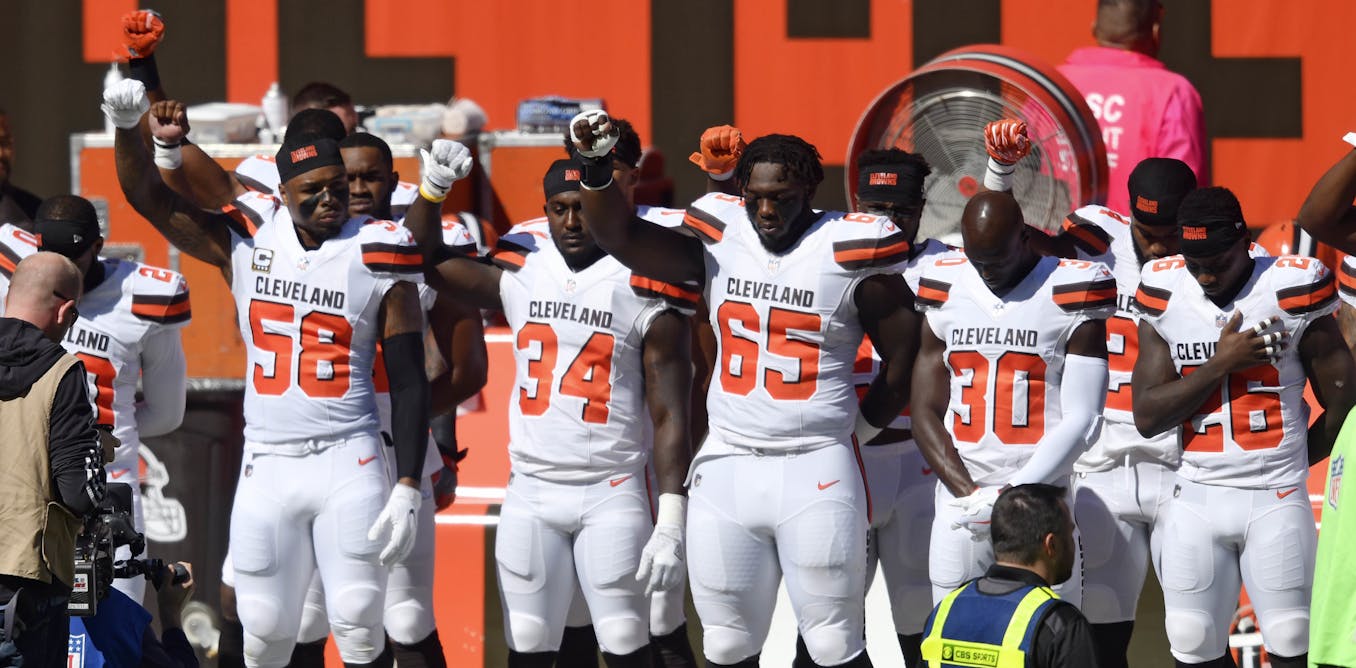by CHAD WILLIAMS
 The NFL is attempting to shut down protests like this one by members of the Cleveland Browns. PHOTO/AP/David Richard
The NFL is attempting to shut down protests like this one by members of the Cleveland Browns. PHOTO/AP/David Richard
The recent decision by the NFL regarding player protests and the national anthem has yet again exposed the fraught relationship between African-Americans and patriotism.
The controversy has taken place nearly a century after another time when African-Americans painfully grappled with questions concerning loyalty to the nation and the struggle for equal rights.
In July 1918, at the height of American participation in World War I, W. E. B. Du Bois, the acclaimed black scholar, activist and civil rights leader, penned arguably the most controversial editorial of his career, “Close Ranks.”
“Let us, while this war lasts, forget our special grievances and close our ranks shoulder to shoulder with our own white fellow citizens and the allied nations that are fighting for democracy,” he advised his fellow African-Americans. Du Bois acknowledged that this was “no ordinary sacrifice,” but black people would nevertheless make it “gladly and willingly with our eyes lifted to the hills.”
Pressured from league owners, white fans and the president of the United States, black NFL players are now faced with the dilemma of closing ranks and forgetting their “special grievances,” or continuing to protest against racial injustice.
The history of African-Americans in World War I, as I have explored in my work, offers important lessons about how to confront this challenge.
The NFL, race and the national anthem
Last season, during the playing of the national anthem, dozens of NFL players kneeled, locked arms and raised their fists in protest against police and state-sanctioned violence inflicted upon African-Americans. Their actions elicited a fierce backlash, much of it fueled by President Donald Trump, who encouraged his overwhelmingly white base of supporters to boycott the NFL so long as players, in his view, continued to disrespect the flag. Seeking to avoid further controversy, on May 23, Commissioner Roger Goddell announced that for the upcoming season, “All team and league personnel on the field shall stand and show respect for the flag and the Anthem.” Not following this directive could result in teams being fined and players subject to “appropriate discipline.”
Approximately 70 percent of the players in the NFL are African-American. They have also been the most visible faces of the national anthem protests, which began in 2016 with quarterback Colin Kaepernick, who is currently unemployed and suing owners for collusion to keep him out of the league.
Conversation for more
